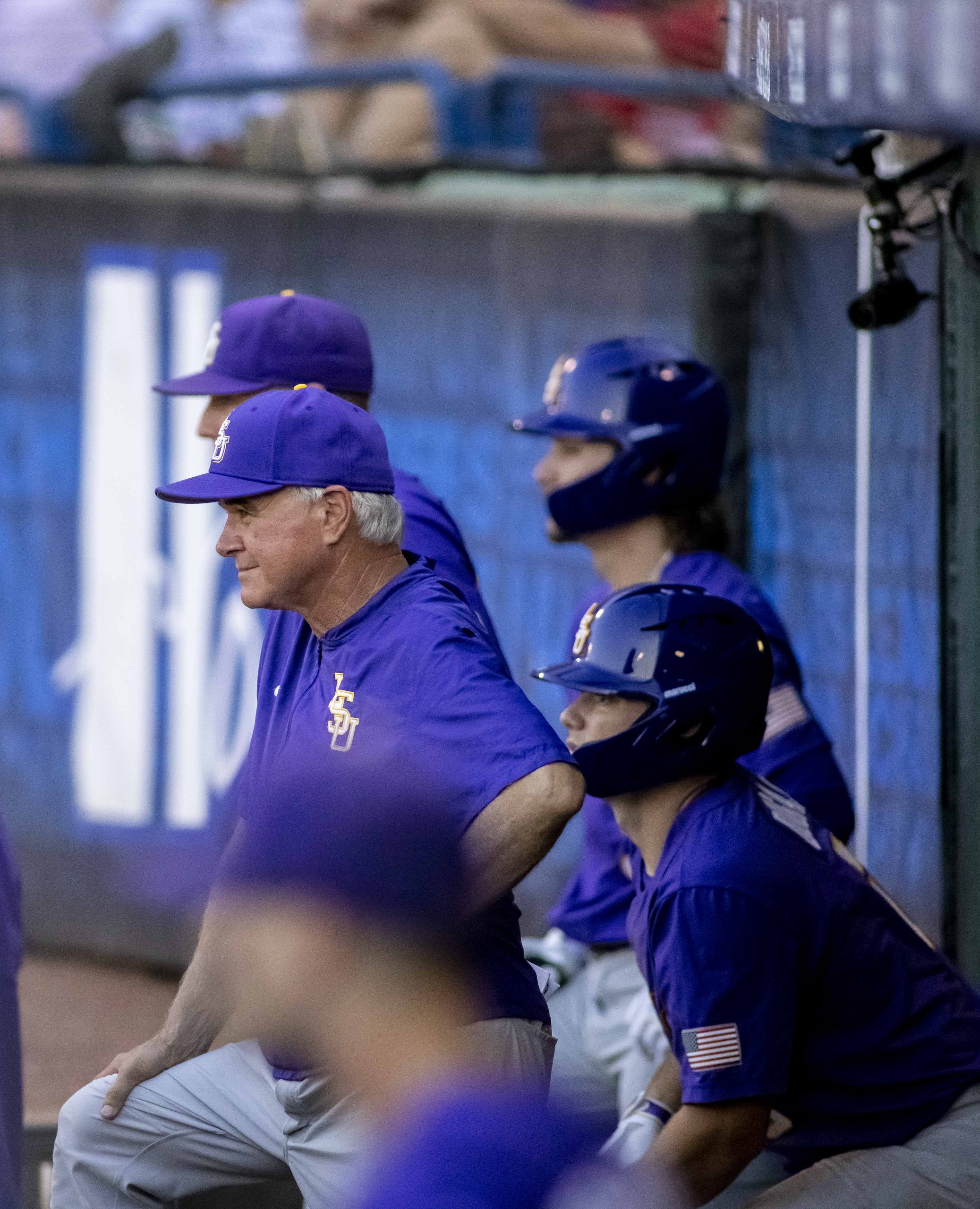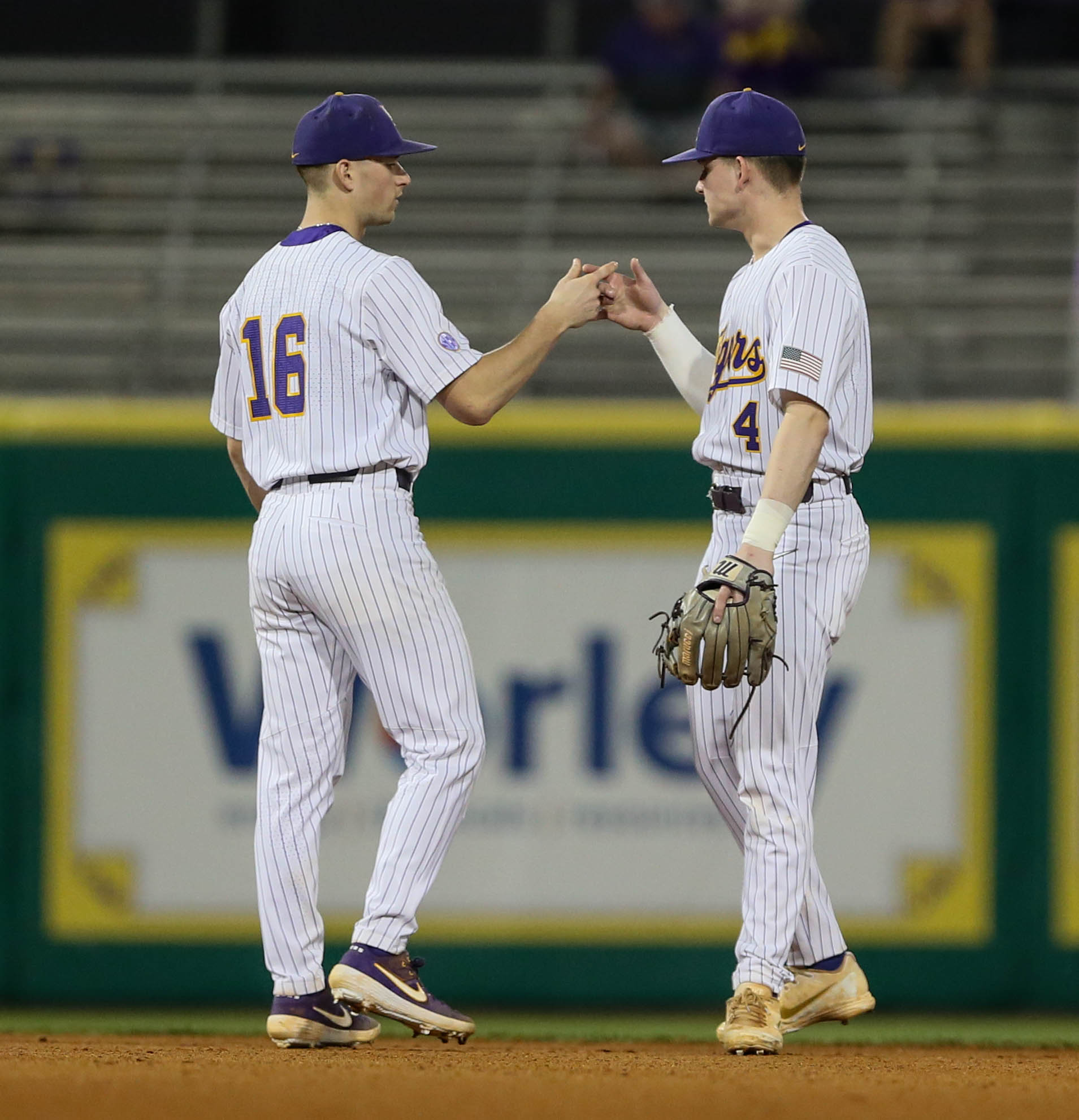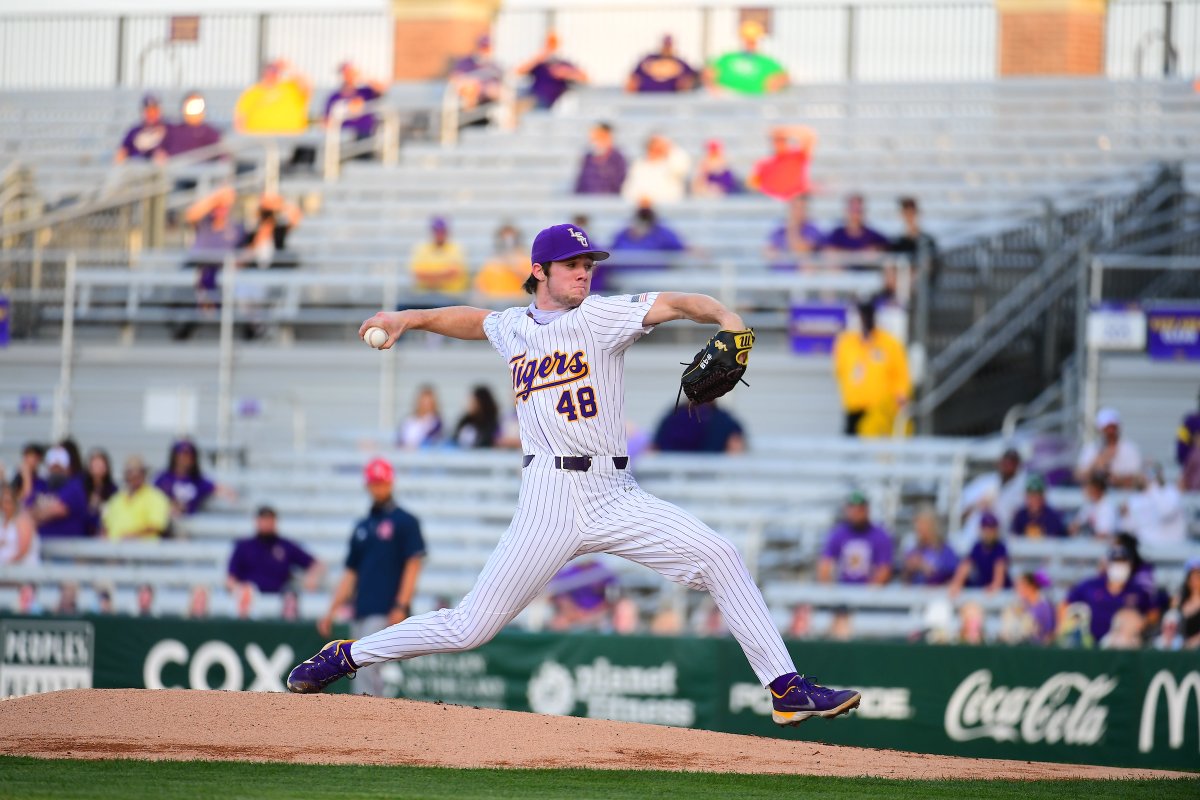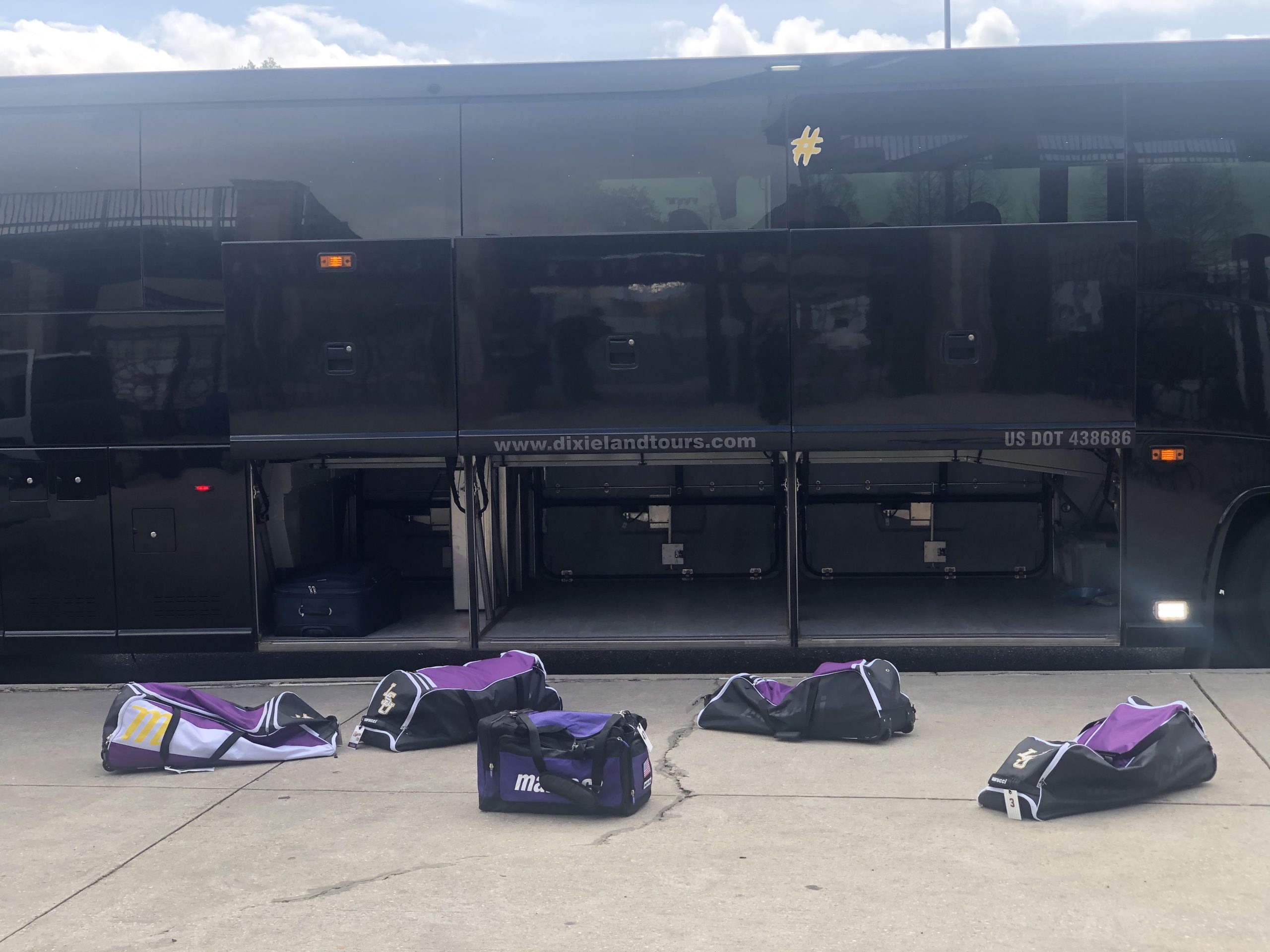
Dear Paul,
Please take what I’m writing in the spirit it’s intended, especially from a semi-old 60 plus dude to another semi-old 60 plus dude who’s about the same age (64 for me, 63 for you) and who has done what they love in their chosen profession for decades (43 years as a sportswriter for me, 39 as a head college baseball coach for you with the last 15 seasons at LSU).
Perhaps I have a soft spot for anyone who not only survives but thrives in their job for decades (and does it with such overwhelming niceness). And you and I are basically the same person in a lot of ways.
Your dad Demie Mainieri was the first junior baseball college coach ever to win 1,000 games. You were raised in dugouts and locker rooms. It felt natural for you to become a head coach. It was like joining the family business.
My father Ace was LSU’s sports information director from the early 1950s until the late 1960s when he died of a heart attack at age 45. Press boxes and newspaper offices were my childhood world. Becoming a sportswriter felt second-nature to me.
In some of our one-on-one interviews, Paul, I don’t think we’ve ever discussed what motivated us to always wanting to be the very best. Perhaps it was because we wanted to make our dads proud.
Whatever the reason, there have been constant sacrifices in a relentless pursuit of our career successes.
It’s something no one understands but our wives and kids who too many times have missed their absentee husbands and fathers who were out recruiting or chasing stories in a constant battle to meet their ridiculously high expectations.
When we win championships or write award-winning stories, we expect high-level success because we demand it of ourselves. The tough part is that happiness doesn’t last long, because we’re already pondering and planning how to repeat success.
When we fail, whether it’s losing games or misspelling someone’s name in a story, our errors are in full view of the public. Those moments eat at us for longer than they should.
The residual satisfaction in our jobs often comes years later.
For you, Paul, it’s seeing former players succeed in life after baseball and knowing you prepared them for that. Or when new LSU women’s basketball coach Kim Mulkey publicly thanked you at her introductory press conference for “taking a cocky little boy (her son former LSU All-SEC shortstop Kramer Robertson) and making him into a man.”
For me, it’s former athletes remembering stories I wrote about them and telling me their children read those same stories to understand who they once were.
Or like last October when I wrote a lengthy Tiger Rag feature on former early 1970’s LSU football and baseball star “Miracle” Mike Miley, who died in a car wreck in Baton Rouge shortly after he began his pro baseball career.
One of the best compliments came from Pat Artieta, one of Miley’s sisters, who said my story gave a clear picture to her kids of how great their uncle was as a college and high school athlete.
Paul, you and I relish those moments because we often never take time to stop and smell the roses. We’ve been driven not to ever take one step backwards in our careers, so we don’t really have time for compliments or hobbies.
Having spare time drives us crazy because we don’t know what to do with ourselves.
And having spare time scares the hell out of us because we’re convinced it’s a preview of retirement.
Three years ago for the first time in my career, I was laid off twice in four months (both because of budget cuts), first as a sports columnist by the Times-Picayune after five years and second as sports editor of the Jackson (Miss.) Clarion-Ledger after 90 days.
Following the Jackson debacle, our family moved back to Baton Rouge and I vowed to never leave again. Thanks first to Jimmy Smith of TigerDetails.com and now Tiger Rag owner and publisher Jim Engster, I’m still doing what I love.
But Paul, the last few years gave me a different perspective.
I realized after 180 or so writing awards and authoring or co-authoring six books, I have nothing to prove to anybody.
It’s enough being happy producing a fun, readable magazine and website without the pressure of the daily grind of a newspaper. It’s satisfying knowing I can still tell a good story, like Mike Miley or the 50th anniversary of the Pete Maravich Assembly Center or the rise of the LSU beach volleyball program to a national powerhouse or the unlikely career path of 30-year old former LSU punter Zach Von Rosenberg.
I say all of the above to say this, Paul.
You have nothing left to prove. In six College World Series trips (five at LSU), you’ve won a national championship and have been a runner-up. You’ve been inducted into the American Baseball Coaches Hall of Fame, just like your dad, and are the only father-son combination in the ABCA Hall.
If you’re concerned about the last couple of seasons affecting your legacy, you’ve touched the lives of almost 40 years worth of your players at St. Thomas University, Air Force, Notre Dame and LSU.
They are your legacy. They are success stories among us in all walks of life. And they appreciate you far beyond any baseball fundamentals you taught them.
The last two years have been a physical and emotional grind for you with your two neck surgeries and the death of your dad. As much as you love the game – the sights, the sounds, the smells and the competition – it’s considerably more of a grind and less fun than it used to be.
Paul, you’ve done your career the right way. Your players have graduated, they haven’t been arrested and have been wonderful, engaging and respectful representatives of every university you’ve ever coached.
Recently, you became the seventh coach in Division 1 history to win 1,500 games.
Just like the Kevin Costner character Crash Davis in the movie Bull Durham immediately retiring as a minor league player after becoming the minor league’s all-time leading home run hitter, the 1,500-win milestone should be your Crash Davis moment.
Five years ago just before the start of your 10th season, you said the following:
“I don’t think I’ll coach beyond the point where people want me. I look at these coaches who coach well into their 70’s, and that’s not me. If I coach for six more years that’d be 40 years. That’s a long career in this profession. Fortunately, I’ve had good health — and that’s something you never take for granted either — you take it one year at a time and do the very best you can.
“I coach my players to never look beyond the most immediate challenge and take it one game at a time. It’d be hypocritical of me to take for granted that I could coach another eight or nine years.”
Paul, you need to heed your own advice and retire from LSU.
Call it a resignation if you wish, because there’s no rocking chair in your future. Your contributions to the game of baseball are far from over.
You’ll be surprised without the pressure and the self-expectations, there’s a freedom of getting back the basic feelings of why you loved the game your dad taught you all those years ago.
A life chapter ends and another opens.
Go write your happy ending, Paul.
Best wishes,
Ron
P.S. If you stick around another season and another and another, don’t hold this column against me. I’ll just re-run it again every year at this time (with win total updates).




Great perspective Ron. And your velvet hammer hit the nail squarely. It’s time for Paul to be an ABCA administrator or take up golf or be a full-time grandpa. But it is definitely time for a new leader of the program that Skip built.
Simply superb advice. Take it coach.
Ron Higgins, We will probably never meet, my loss for
sure. I am a 1978 LSU grad via AFROTC scholarship.
I’m not sure when you actually started writing Tiger Rag articles but
I think those original Tiger Rag issues mailed to my house 40 some odd
years ago had articles by you. Great article on PM, I agree
100%, not that it will ever matter. Thank you for many great articles!
Keith Pearson
LTCOL (R) USAFR
CAPT 787 American Airlines
Yes, it is time for Coach Paul to leave the Tiger baseball program to another. He has done a good job at LSU but the game and the recruiting, especially pitchers, has past him. He can take pitching coach Dunn with him. I nominate Todd Walker as the next baseball coach!